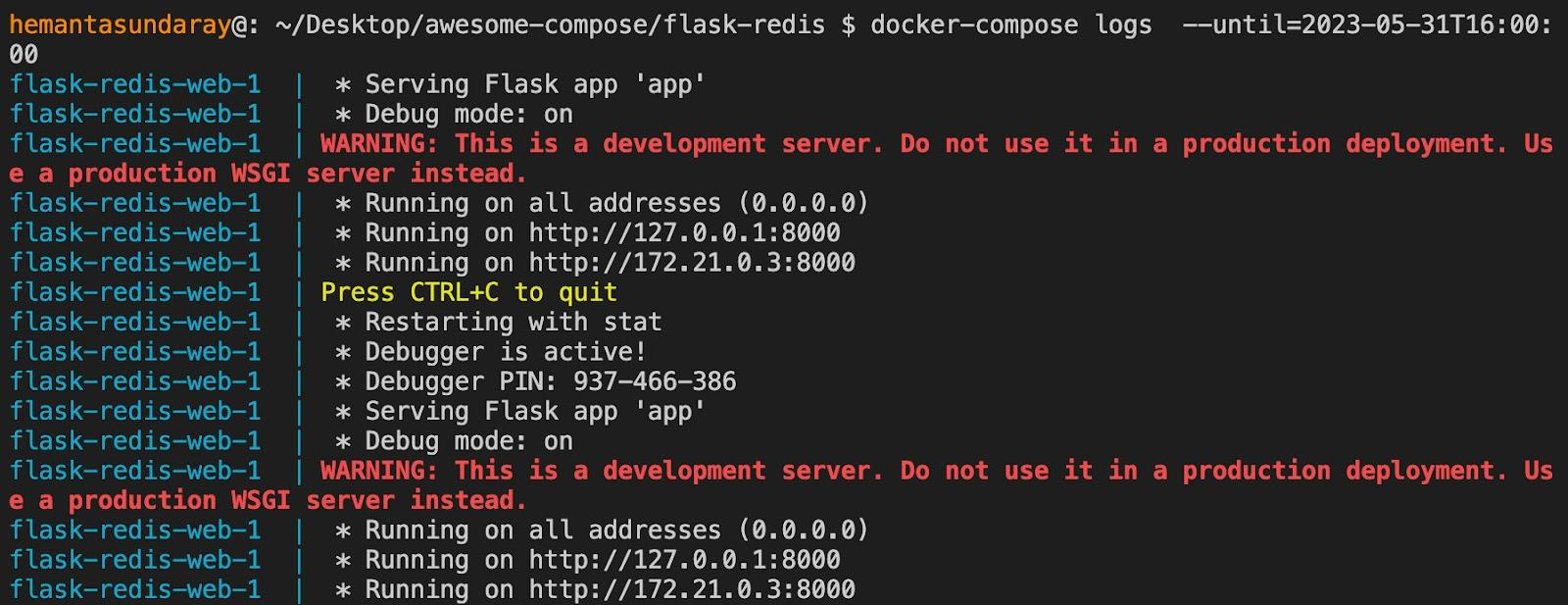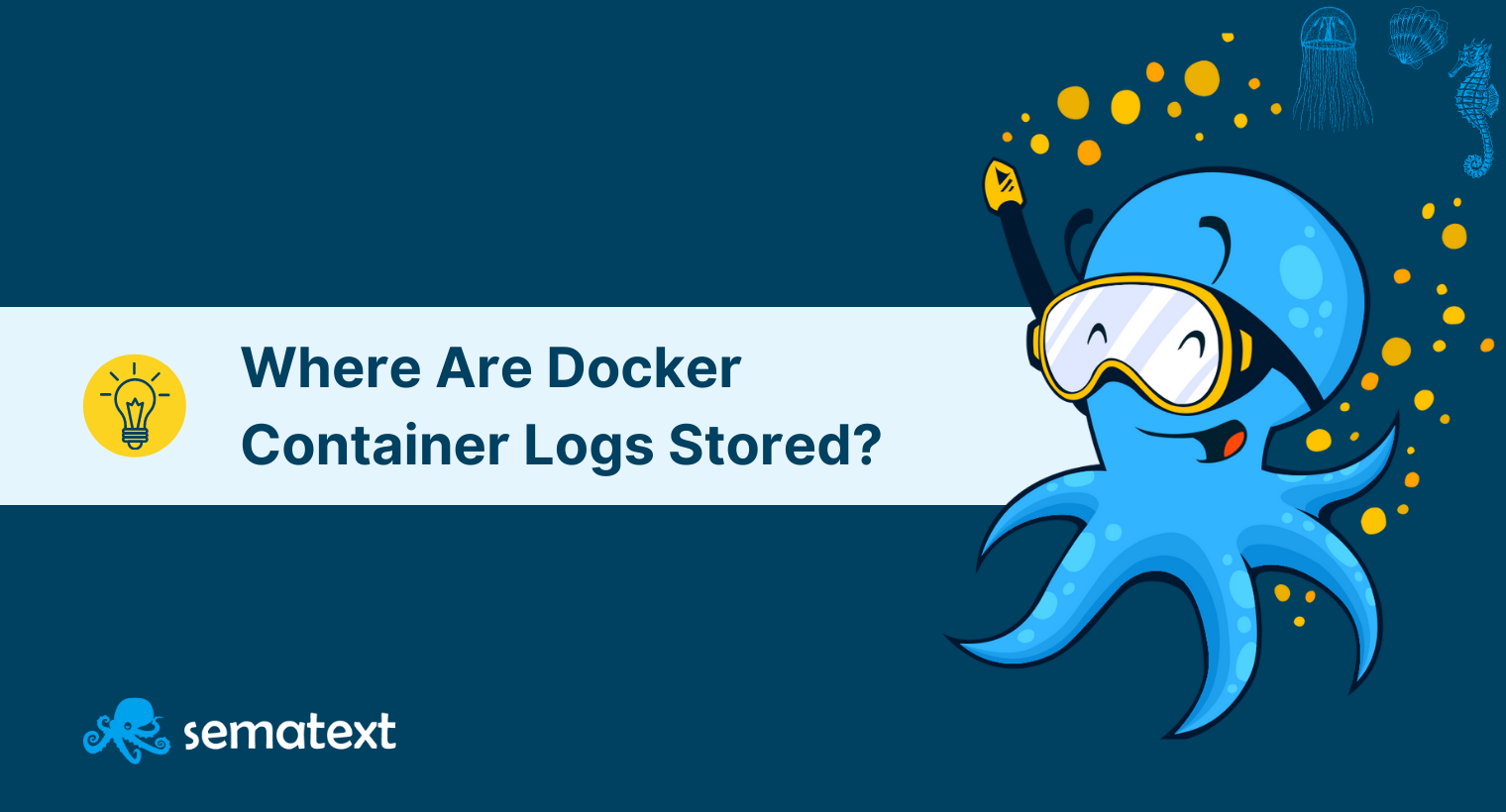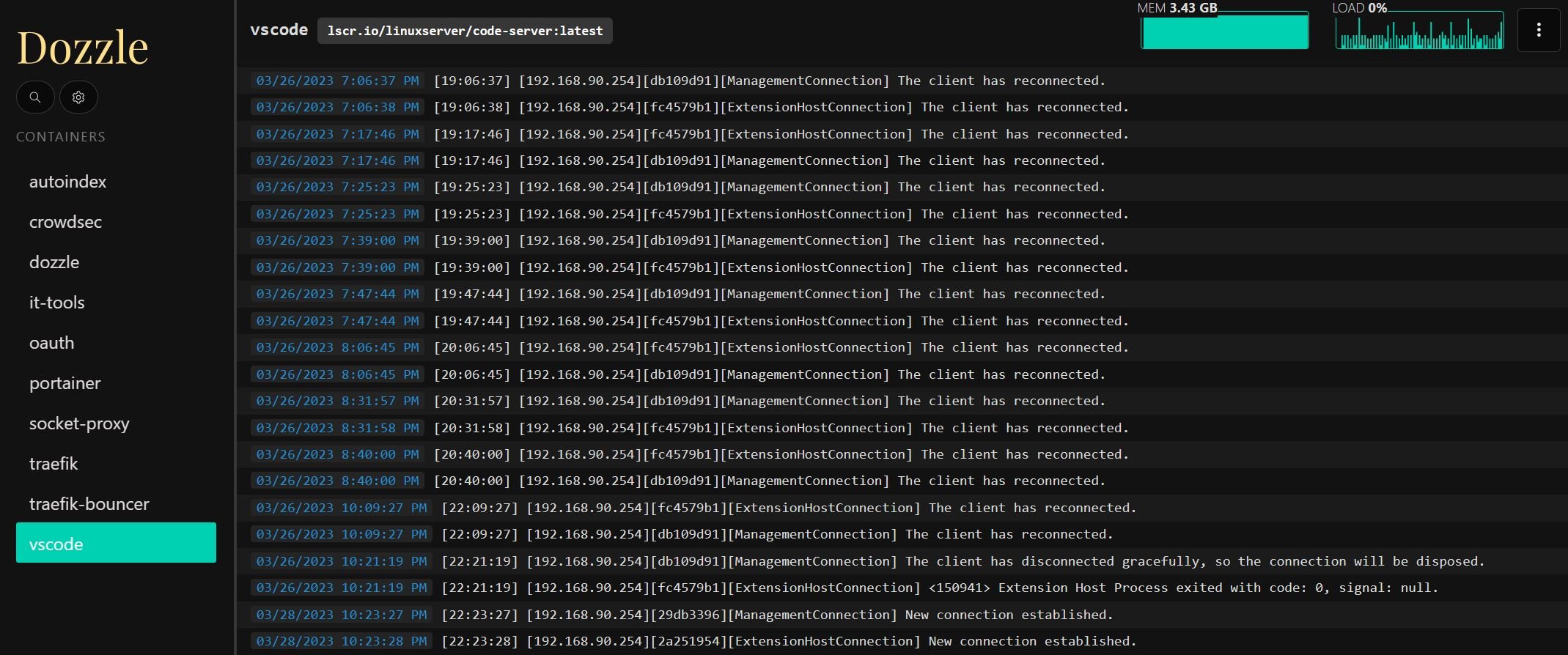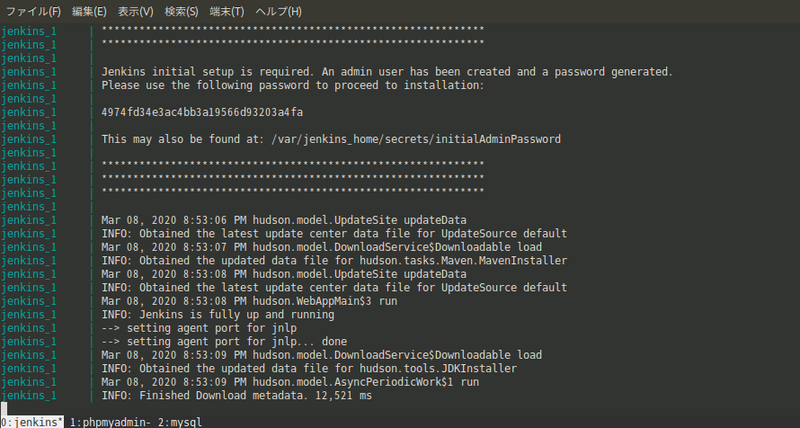Antwort Where are docker-compose logs stored? Weitere Antworten – Where does docker put its logs
Read the daemon logs
| Operating system | Location |
|---|---|
| macOS ( dockerd logs) | ~/Library/Containers/com.docker.docker/Data/log/vm/dockerd.log |
| macOS ( containerd logs) | ~/Library/Containers/com.docker.docker/Data/log/vm/containerd.log |
| Windows (WSL2) ( dockerd logs) | %LOCALAPPDATA%\Docker\log\vm\dockerd.log |
The Compose file is a YAML file defining services, networks and volumes. The default path for a Compose file is ./docker-compose.yml .All volumes are managed by Docker and stored in a dedicated directory on your host, usually /var/lib/docker/volumes for Linux systems.
Where to get docker logs : Each log file contains information about only one container and is in JSON format. Remember, one log file per container. You find these JSON log files in the /var/lib/docker/containers/ directory on a Linux Docker host. The <container_id> here is the id of the running container.
Where docker logs are stored in Linux
/var/lib/docker/containers
By default, the log file is located at /var/lib/docker/containers/<container_id>/<container_id>-json. log on Linux machines. If you want to delete the logs file entirely, you can use the rm command. Be warned, however, that this will permanently delete the file, and there is no way to recover it.
How to collect logs from docker container : Docker has a dedicated command which lists container logs. The docker logs command. The flow will usually involve you checking your running containers with docker ps, then check the logs by using a container's ID. This command will list all logs for the specified container.
Volumes are stored in a part of the host filesystem which is managed by Docker ( /var/lib/docker/volumes/ on Linux).
Docker Compose v1 has been deprecated as of July 2023. All customers utilizing Compose v1 on GitHub-hosted runners are encouraged to migrate to Compose v2. Per GitHub's support policy we will remove this tool from our GitHub managed runner images effective July 9, 2024.
Does docker-compose Down delete data
Stops containers and removes containers, networks, volumes, and images created by up . By default, the only things removed are: Containers for services defined in the Compose file.C:\ProgramData\docker
In a default installation, layers are stored in C:\ProgramData\docker and split across the "image" and "windowsfilter" directories. You can change where the layers are stored using the docker-root configuration, as demonstrated in the Docker Engine on Windows documentation./var/log/containers directory
These logs are usually located in the /var/log/containers directory on your host. If a container restarts, kubelet keeps logs on the node. To prevent logs from filling up all the available space on the node, Kubernetes has a log rotation policy set in place.
View Logs Generated Before and After a Specific Time Period
To filter logs based on time, we can use two flags with the docker-compose logs command: –since and –until . The –since flag is used to view the logs that were generated after a specified time period.
Where docker logs ubuntu : You can use a simple command to do this. By default, the log file is located at /var/lib/docker/containers/<container_id>/<container_id>-json. log on Linux machines. If you want to delete the logs file entirely, you can use the rm command.
How to get logs from a specific container in Docker compose : You can simply use the docker command to get what you need. Use docker ps or docker ps -a to find out about your containers. Use docker logs … with container name to get logs out of a particular container. This works even if you have redirected your logs elsewhere in compose file.
What are volumes in Docker compose file
Volumes are persistent data stores implemented by the container engine. Compose offers a neutral way for services to mount volumes, and configuration parameters to allocate them to infrastructure.
Compose V1 support will no longer be provided after June 2023 and will be removed from all future Docker Desktop versions. If you're still on Compose V1, we recommend you switch as soon as possible to leave time to address any issues with running your Compose applications.Disadvantages of Docker Compose
- Docker's compose server might have a single point of failure.
- Have to start from scratch when it comes to high availability.
- You don't have health checks available in production with Docker Compose.
- You can't replace a container without downtime.
What are the downsides of docker-compose : Disadvantages of Docker Compose
- Docker's compose server might have a single point of failure.
- Have to start from scratch when it comes to high availability.
- You don't have health checks available in production with Docker Compose.
- You can't replace a container without downtime.








